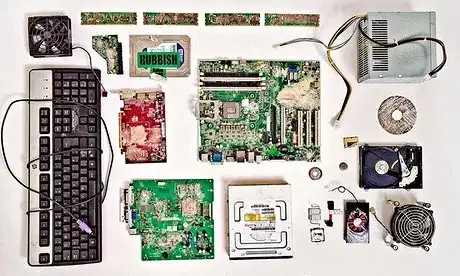A good reference will be how Guardian's computers holding Snowden data were destroyed under the supervision of GCHQ. Guardian video and The Intercept analysis.

As you can see from the picture above, apart from the hard disk, a large number of chips were removed. Apparently, the theory is they could be "imprinted" if the same data frequently go through the same pathways.
Whether you believe this is true and if this is worth it is up to you.
However, one thing that has been demostrated is that any device with its own persistent storage (BIOS, firmware chips, etc.) can be used to storage and exfiltrate data.
Quote from The Intercept:
The track pad controller, they said, can hold up to 2 megabits of
memory. All the different “chips” in your computer — from the part
that controls the device’s power to the chips in the keyboard — also
have the capacity to store information, like passwords and keys to
other data, which can be uploaded through firmware updates. According
to the public documents from other members of Five Eyes, it is
incredibly difficult to completely sanitize a device of all its
content. New Zealand’s data deletion policies state that USB memory is
only destroyed when the dust is just a few millimeters in length.
“This wasn’t a random thing,” said Tynan, pointing to a slide
displaying a photo of a completely destroyed pile of USB chip shards.
